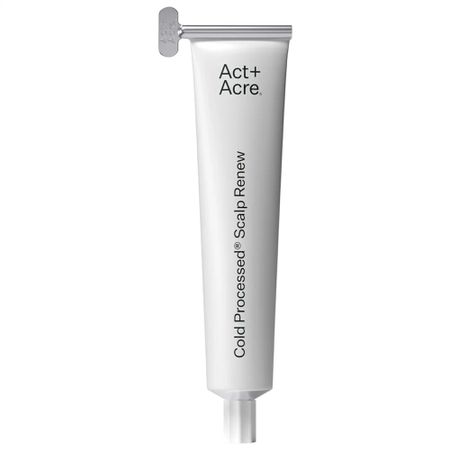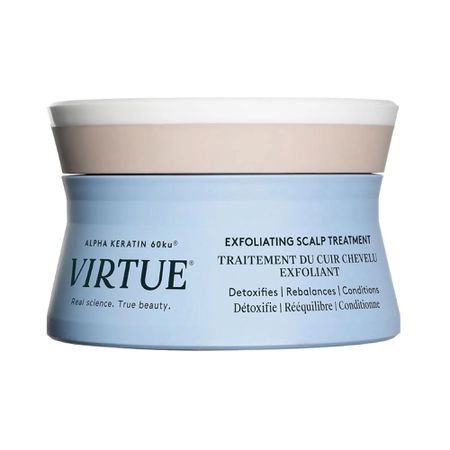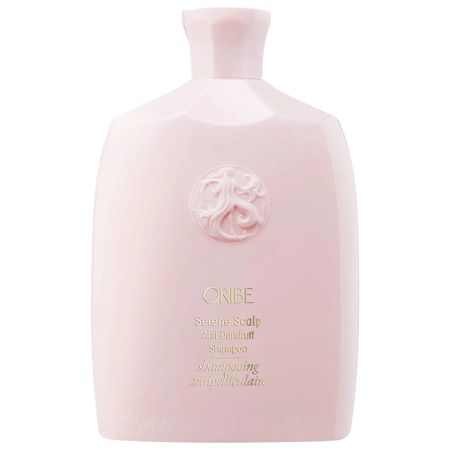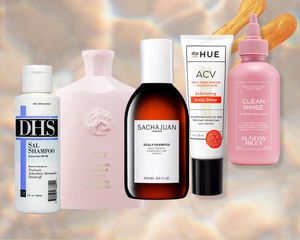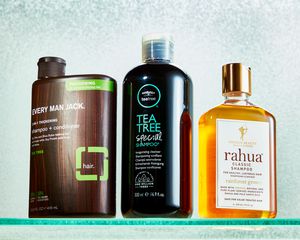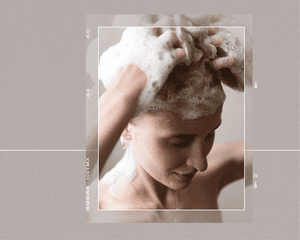:max_bytes(150000):strip_icc()/salicylic-acid-hair-0d9a42aba98842638fb76ee3a580b4d2.png)
@necessaire / Instagram
Salicylic acid might just be the true one-stop-shop powerhouse of skincare—and when I say skin, I mean all of your skin. From head to toe, salicylic acid has proven to be adept at clearing dead skin cells and other pore-clogging impurities, whether on your face, body, or even your scalp.
While salicylic acid’s benefits for the face and body are widely reported, there’s less talk around how great the ingredient is for the scalp. So we tapped board-certified dermatologist Joshua Zeichner, MD, and trichologist Kari Williams, Ph.D., to give us the low-down. Keep reading for everything you need to know about salicylic acid for your hair (well, scalp).
Meet the Expert
- Joshua Zeichner, MD, is a board-certified dermatologist and the director of cosmetic and clinical research in dermatology at Mount Sinai Hospital in New York City.
- Kari Williams, Ph.D., is a board-certified trichologist and licensed cosmetologist, as well as a member of DevaCurl’s Expert Curl Council.
Salicylic Acid for Hair and Scalp
Type of ingredient: Exfoliator
Main benefits: Helps remove excess oil and dead cells from the surface of the skin
Who should use it: Most people will benefit from salicylic acid-based haircare, especially those with a flaky, dry scalp and those with oily hair, says Williams. That being said, anyone with a sensitive scalp should proceed with caution.
How often can you use it: Williams says salicylic acid shouldn’t be used more than twice a week to avoid scalp aggravation and irritation.
Works well with: Follow up with moisturizing and hydrating products that feature ingredients like glycerin to help soothe any potential irritation.
Don’t use with: Both doctors suggest sticking to one sort of exfoliating product at a time so as not to overwhelm the scalp.
What Is Salicylic Acid?
Salicylic acid is a type of chemical exfoliant called beta-hydroxy acid (BHA) that helps remove excess oil and dead cells from the surface of the skin. BHAs are oil-soluble, which means they cut through any surface oil and exfoliate deep within the pores, says Zeichner. For this reason, salicylic acid is a go-to choice for fighting acne and excess oil on the skin.
And since there’s skin on the scalp... I think you can see what I’m getting at here, which is that salicylic acid is also a great option for the scalp—especially for those of us prone to dandruff, seborrheic dermatitis, product buildup, and excess oil. Studies even show that applying salicylic acid to the scalp can help to reduce scalp psoriasis.
Benefits of Salicylic Acid for Hair
Salicylic acid does a whole lot more than just fighting acne (though it is quite adept at fighting scalp acne—don’t lie, we’ve all been there). When used on the scalp, it has a host of benefits:
- Improves dandruff management: Salicylic acid effectively removes scaly, hyperkeratotic skin by breaking down cell-to-cell adhesion.
- Minimizes scalp irritation and itching: Uncomfortable, itchy hair can be made even worse by excessive dead skin buildup on the scalp. Salicylic acid loosens that dead, irritated skin and makes it easier to wash away in the shower.
- Soothes seborrheic dermatitis: Salicylic acid is incredibly effective at soothing seborrheic dermatitis, which is fancy talk for having a flaky, oily scalp. By both eliminating oil buildup and breaking down scaly, dead skin, salicylic acid seemingly banishes the issue altogether.
- Eliminates oil and product buildup: Many of us are guilty of stretching out a great hairdo one day too many with heaps of dry shampoo. Luckily, salicylic acid naturally strips away the outermost layer of the epidermis, allowing oil, dead skin, and product buildup to wash right off.
And those are just the benefits with indisputable evidence. While there isn’t a direct link to salicylic acid and reduction in hair loss, many believe it can potentially help. Salicylic is especially keen at removing excess sebum, a waxy, oily substance that can contain dihydrotestosterone (DHT). And DHT happens to be a key hormone responsible for hair loss in men. There isn’t any conclusive evidence that the DHT found specifically in scalp sebum contributes to male pattern baldness, but there is evidence that the condition of the scalp impacts hair growth and retention. And since salicylic acid helps keep the scalp healthy and clean, well, you can see why people have put two and two together.
Even if you’re not prone to any of these issues (which, side note, good for you), the ingredient is still beneficial, ensuring that any nasty buildup in the hair breaks down and washes out.
And, to this point, a note about scalp issues: They’re totally normal. Thanks to the abundance of hair usually found on the scalp, it’s pretty much an ideal environment for developing build-up of any kind—whether it be from oil, bacteria, dead skin cells, products, or a gross mix of all four. Beyond the conditions of the scalp itself, tons of outside factors can add to scalp issues, including stress, the weather, poor diet, and infrequent hair washing. Long story short, most people have some sort of scalp issue, whether they realize it or not. And as a result, most people can benefit from some sort of salicylic acid-based scalp treatment.
Hair Type Considerations
While most people can benefit from a little salicylic acid on the scalp, there are a few exceptions. As is the case with sensitive skin, sensitive scalps could potentially have a bad reaction to salicylic acid, such as irritation or a stinging sensation. Likewise, doctors suggest that those with any broken, irritated, or compromised skin on the scalp avoid salicylic acid treatments—and definitely don’t use it on any open cuts and wounds.
Trichologists also suggest that those with exceedingly dry scalps and hair proceed with caution when it comes to salicylic acid, as they might find the ingredient to be drying to the hair shaft or scalp. In that case, consider fitting it into your routine a couple of times a month (rather than weekly), and be sure to combine it with moisturizing ingredients and other hydrating products to minimize any drying out.
All this being said, there is potential to sensitize and dry out even the oiliest of scalps. Frequency is key here—in other words, do not use a salicylic acid-based shampoo every day. As someone who has struggled with an oily scalp since puberty, I totally get the appeal. But you can over-exfoliate your scalp, just like you can over-exfoliate your face. Trust me, neither are pretty. For my fellow excessively oil people, stick to every few washes or so.
How to Use Salicylic Acid for Hair
Just like in traditional skincare, there are a bunch of different formulas and application methods one can use when it comes to scalp care. It really just depends on preference and needs.
For scalp disorders like seborrheic dermatitis and psoriasis, Williams suggests looking into medicated shampoos and topical serums. For the rest of us, there are a handful of options. Scalp shampoos are a fairly easy starting point since they don’t require any extra work outside of the usual wash-and-go. Just switch out your usual shampoo with a salicylic acid-based option one to three times a week (the number will vary depending on your scalp issues and how often you wash your hair).
If you’re looking for a deeper cleanse, try a scalp scrub. While I steer clear of physical exfoliation on my face, I love a good gritty scrub for sloughing off my body. Luckily, scalp scrubs are formulated with a fine texture that’s totally okay to use on the head.
Finally, scalp serums, pre-cleanses, and treatments are ideal for targeting specific issues and boosting scalp health.
The Best Hair Products With Salicylic Acid
Below, you’ll find our favorite salicylic acid-based shampoos, scrubs, serums, pre-cleanses, and treatments.
This multi-tasking treatment clarifies, cleanses, and hydrates the scalp in one simple rinse-off step. Simply apply to the scalp, massage in, and let it sit between three to 30 minutes before rinsing. Follow with shampoo and conditioner as usual.
Healthy hair starts at the root, which is why the experts at Sachajuan created a two-step routine focused on scalp care (yes, you heard that right, there’s a matching Conditioner). Both products calm irritation, reduce dandruff, and help you maintain a healthy moisture balance.
This pre-wash treatment is a remedy for build-up, excess sebum and flaky scalps. It also includes peppermint oil to instantly cool the skin and soothe scalp sensitivities.
With a whipped cream texture, this treatment detoxifies follicle buildup while conditioning and balancing the scalp. Swap out your conditioner and use this one post-shampoo once or twice a week for optimal results.
This sulfate-free shampoo keeps flakiness at bay while supporting optimal moisture balance of the scalp and hair. Salicylic acid gently exfoliates, while bilberry fruit and sugar maple extracts simultaneously soothe the scalp.
